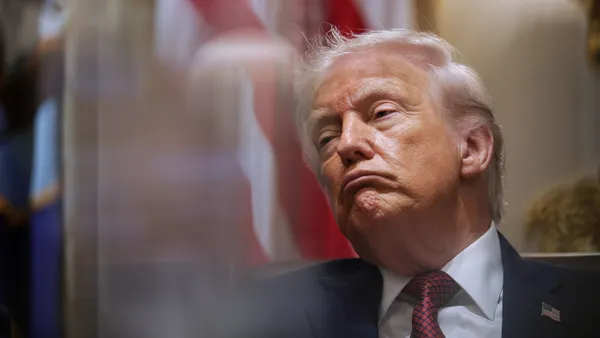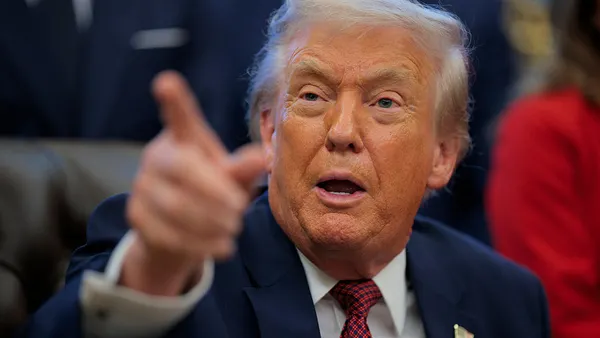Dive Brief:
- The first round of talks to renegotiate the North American Free Trade Agreement ended Sunday with few additional details, except for a more clear timeline for future talks.
- In a trilateral statement, the representatives laid out an "ambitious" timeline for the trade talks, which the countries are hoping to conclude by early 2018. Reports indicate the negotiators spoke about more than a dozen subjects in broad terms.
- The next round will take place from Sep. 1 to Sep. 5 in Mexico, with the third round taking place later that month in Canada, and the fourth round scheduled for October in the U.S.
Dive Insight:
Trade negotiators are in a unique position while renegotiating NAFTA: never before has a trade deal been renegotiated, much less with such an expedited timeline and contrasting trade philosophies.
It's an unenviable situation, really. All three countries seem to agree the deal must be modernized, but years of debate among all sides has left fissures in public sentiment. These fissures were on clear display last week, during each country's opening statements. Simply put, the record is far from clear on NAFTA's effects on each country, and the U.S. took the chance to state it sought to use the deal to bring back lost jobs through trade policy.
“The numbers are clear," said United States Trade Representative Robert Lighthizer on Wednesday. "The U.S. government has certified that at least 700,000 Americans have lost their jobs due to changing trade flows resulting from NAFTA. Many people believe that the number is much, much bigger than that.”
Anticipating these remarks, the representatives of Canada and Mexico made it clear the U.S. would be among the biggest losers if NAFTA were scrapped altogether, all the while presenting their main goals for the talks.
Reports since the event have highlighted these tensions at the start, but the closing remarks were closed to questions from the press — likely to avoid revealing points of contention. Various sources, however, claim rules of origin, the dispute settlement process and labor issues are likely to delay talks. Most are also skeptical of the proposed expedited timeline for trade talks, given large philosophical differences.
However, so far, NAFTA onlookers can celebrate one victory: The talks have yet to break down, and at least publicly, the negotiators remain committed to an expedited timeline. Opening statements at the next round of negotiations may be the best indicator of how much the first round accomplished.














